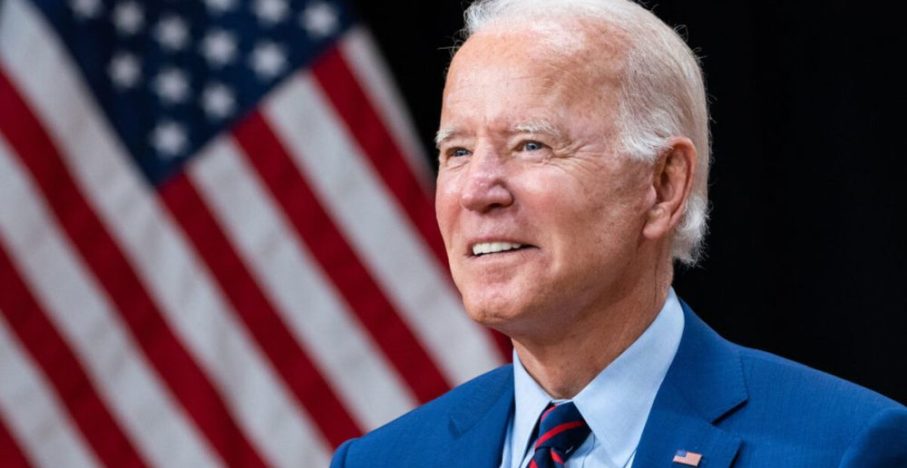Preserving Due Process in Title IX Hearings

A few weeks after taking office, President Joe Biden ordered his education secretary to revisit regulations enacted under Donald Trump that established rules for college disciplinary hearings involving allegations of sex discrimination. For students accused of campus sexual misconduct, nothing less than their entire future may be at stake.
Biden’s executive order instructed Secretary of Education Miguel Cardona to review the Trump-era rules, which took effect in August 2020, and issue “new guidance as needed,” including “suspending, revising, or rescinding” them if they are not consistent with a guarantee to students of an educational environment free from sex discrimination.
However noble this language sounds, many attorneys fear this will be a step backwards that ultimately strips fairness from civil rights proceedings convened under Title IX by the nation’s colleges and universities.
I’ve seen firsthand what unfair processes look like and the devastating consequences they have on accused students. My colleagues and I have collectively handled well over 500 Title IX matters across the country for students, predominantly men, accused of sexual misconduct. Although we have differing political views, we all agree on the importance of preserving critical aspects of the Trump-era rules, which were championed by former Education Secretary Betsy DeVos.
I recognize and applaud Biden for his many years of hard work to combat sexual violence against women. I don’t dispute that our nation’s universities had a history of ignoring legitimate complaints of sexual misconduct. Those failings needed to be rectified. But the rules in effect under former President Obama, to which Biden apparently wants to return, served no one.
Sexual misconduct is a serious matter. Disciplinary charges brought under Title IX can lead to lengthy suspensions or expulsion. If college authorities decide a student violated someone else’s Title IX rights, that finding can follow him or her for life and have significant career and financial implications. When such students can transfer, they virtually always end up completing college at a lesser institution and often years later, if at all. Even a student from a top university with superior academic credentials virtually cannot be accepted to a United States medical school with a Title IX finding. No wonder students accused of violating Title IX need expert legal advice.
For complainants, unfair processes have led to uncertainty: More than 600 lawsuits have been filed in the past eight years by accused students critical of the processes that held them to be guilty, and the majority of courts have agreed. Findings reached in processes perceived to be unfair are often viewed, rightly so, as illegitimate.
The DeVos rules are designed to assure that every sexual misconduct complaint is taken seriously and that robust supports are available to the complaining student, regardless of whether they proceed to a formal disciplinary process. If they do, these rules ensure due process and fundamental fairness to both parties.
Safeguards introduced during the Trump administration should be preserved in any new policies, including the presumption of innocence, timely notice of all charges, truly impartial proceedings, full access to evidence, and a live hearing with cross examination of each party by the students’ selected advisors.
Opponents of the DeVos rules claim cross examination re-traumatizes the alleged victims. I understand the difficulty and pain of having one’s most intimate moments examined. Nevertheless, it’s essential to get to the truth, and both parties are equally subject to examination.
Many Title IX matters arise out of alcohol- or drug-fueled college partying and late-night sexual encounters. Often the only witnesses are the complainant and respondent, and a determination of credibility will drive the ultimate result. If a student believes they were sexually assaulted and makes such allegations – allegations that may have life-altering consequences for the other student – we believe it is reasonable for both of them to appear at a live hearing, with the support of an advisor, and have their narratives subject to direct questioning.
The DeVos rules in part reflected court rulings recognizing the importance of due process rights for accused students. Before taking effect, the proposed rules were subject to extensive comment, with the vast majority of comments submitted by victim rights advocates. Moreover, public sentiment has changed in favor of insuring due process for all involved, and universities do not want to be constantly changing their procedures depending upon which party is in power. Even opponents of the Trump administration’s rules recognize the additional support they provide for potential victims, as well as a stronger focus on informal processes (such as facilitated resolution or restorative justice) as a possible path to resolution without the need for a hearing.
Our country’s foundational due-process safeguards must be available to all students in any school disciplinary process. They must be preserved in any proposed revisions put forward under President Biden.
If you or someone you know is facing disciplinary action for alleged sexual misconduct on campus, please give my office a call. We can answer your questions and help assure your rights are fully protected.





